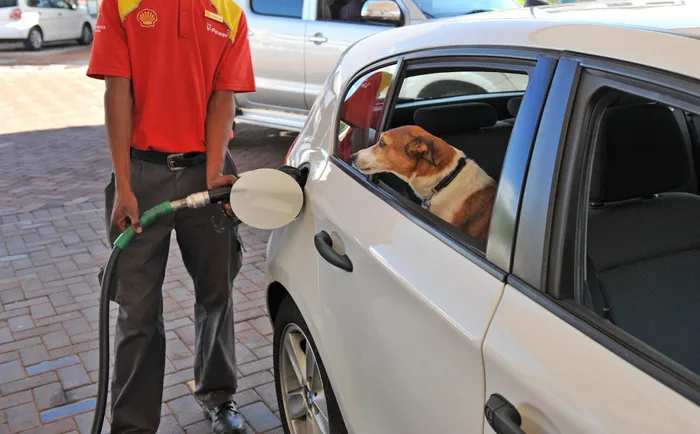Latest fuel price hikes push South African consumers deeper into despair

As South Africans brace for another round of escalating living costs, the rising fuel prices serve as a harsh reminder of the ongoing economic struggles many face. With households forced to compromise on essentials, it begs the question: how much longer can consumers endure in this cycle of debt and despair?
Image: Antoine de Ras / Independent Media.
Hot on the heels of a modest petrol decrease in June, South African motorists now face a jarring reality as fuel prices surge again from 2 July 2025.
The new rise, which pushes 95 Unleaded petrol to R21.87 per litre and 93 Unleaded to R21.79 (an increase of 55 and 52 cents respectively), leaves many consumers grappling with the spectre of financial instability.
Diesel costs have similarly escalated, climbing by 82 to 84 cents per litre. The timing could not be worse; after a momentary sigh of relief, households find themselves back on the edge of despair, hoping for an escape from relentless financial pressures.
The Department of Petroleum and Mineral Resources (DMRE) attributed this recent spike to geopolitical factors such as the ongoing Israeli-Iran conflict, which pushed Brent crude oil prices up by as much as 13%. While the rand has held up surprisingly well amid this turmoil, it is the consumer who bears the brunt of these developments.
But amidst the exasperating energy landscape, the July financial calendar ushers in local municipal tax hikes, further tightening the noose on struggling South African households.
Cities across the country are expected to impose price increases on essential services, including electricity, water, and sanitation, at rates surpassing inflation.
Estimates suggest that households could face bill increases as steep as 30% to 80%, particularly among those with lower consumption levels.
This shift is a consequence of a new pricing structure being initiated by Eskom, aligning energy prices with supply costs and seeking to mitigate subsidies.
The 2025 Energy Market Projections report, compiled by Cresco in collaboration with Standard Bank, painted a sobering picture for the future.
Despite the temporary reprieve from load shedding, South Africa is perilously close to facing yet another energy crisis, foreshadowed by the potential decommissioning of Eskom's coal plants without adequate new energy generation capacity to fill the void.
The alarm bells ring louder as the report indicates that without significant advancements in energy infrastructure, the country risks being unable to adequately support a growing economy.
Neil Roets, CEO of Debt Rescue, highlighted the gravity of the situation.
"With no end in sight to the volley of living cost increases, coupled with consumers already cutting back as much as they can, the latest fuel price increase will cut deeply into the little disposable income people still have left. Alongside the surging prices of electricity and municipal services, millions of households are teetering on the brink of financial catastrophe," Roets told Business Report.
Furthermore, insights gleaned from the latest BankservAfrica Take-home Pay Index revealed a lingering stagnation within the labour market.
The nominal average take-home pay plummeted to R17,296 in May 2025, a decline of 1.3% from April, marking the third consecutive month of decreased income.
"While the upward trend in take-home pay from mid-2024 had provided optimism, recent months reflect a concerning downturn," independent economist Elize Kruger said, who pointed to a volatile economic environment compounded by persistent domestic challenges.
The findings also underscore a spiralling consumer debt crisis.
A recent Debt Rescue survey highlighted that half of the participants reported an inability to afford basic necessities such as food and fuel. Alarmingly, 50% of respondents admitted to relying on credit merely to secure everyday essentials over the past year.
This distressing cycle reveals an increasingly common truth for many South Africans: survival is becoming a daily struggle.
In response to this dire landscape, Roets urged those grappling with debt to seek help from registered debt counsellors, who can provide essential support in navigating their financial predicaments.
"These professionals have successfully aided thousands of over-indebted consumers," he said.
BUSINESS REPORT
Visit: www.businessreport.co.za